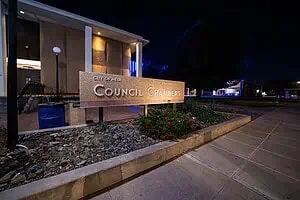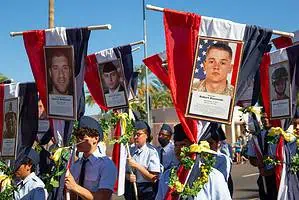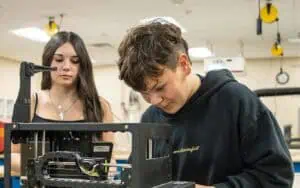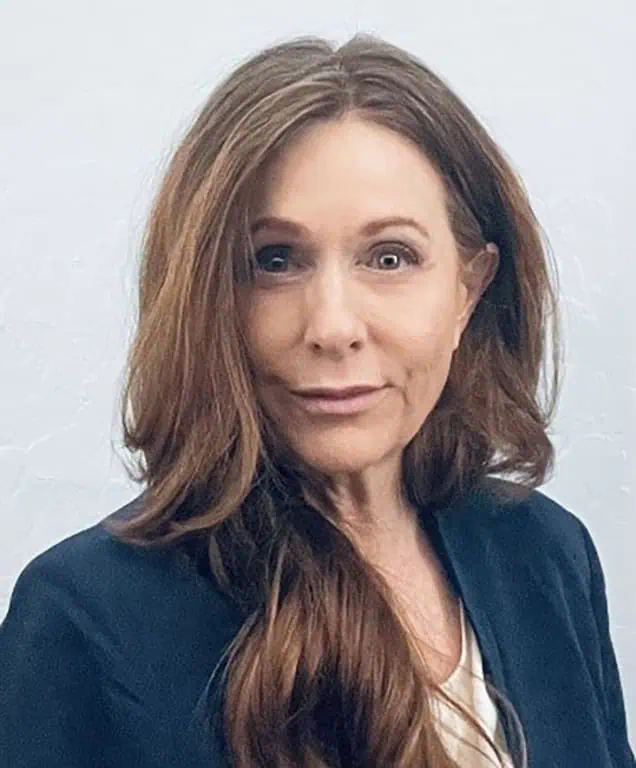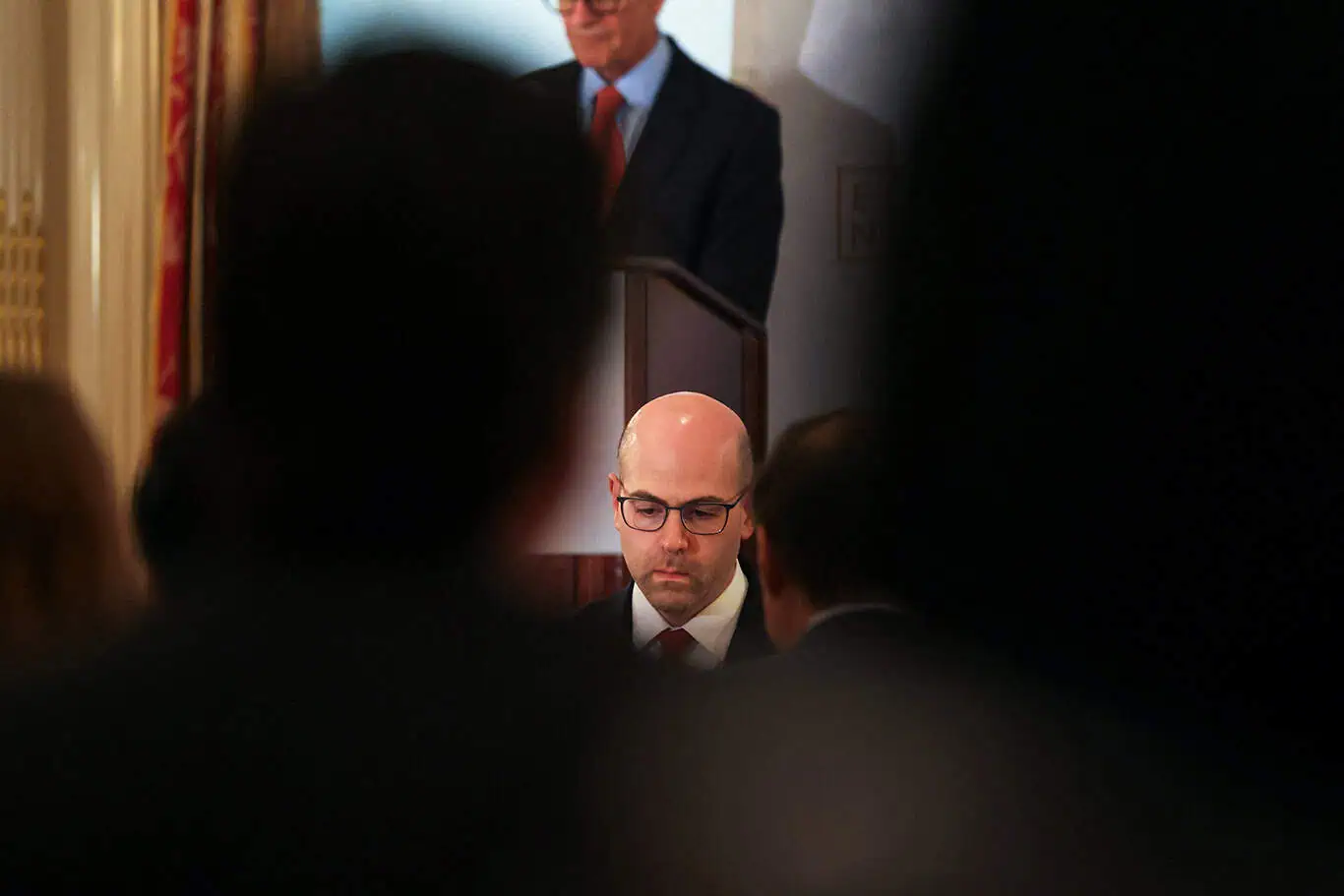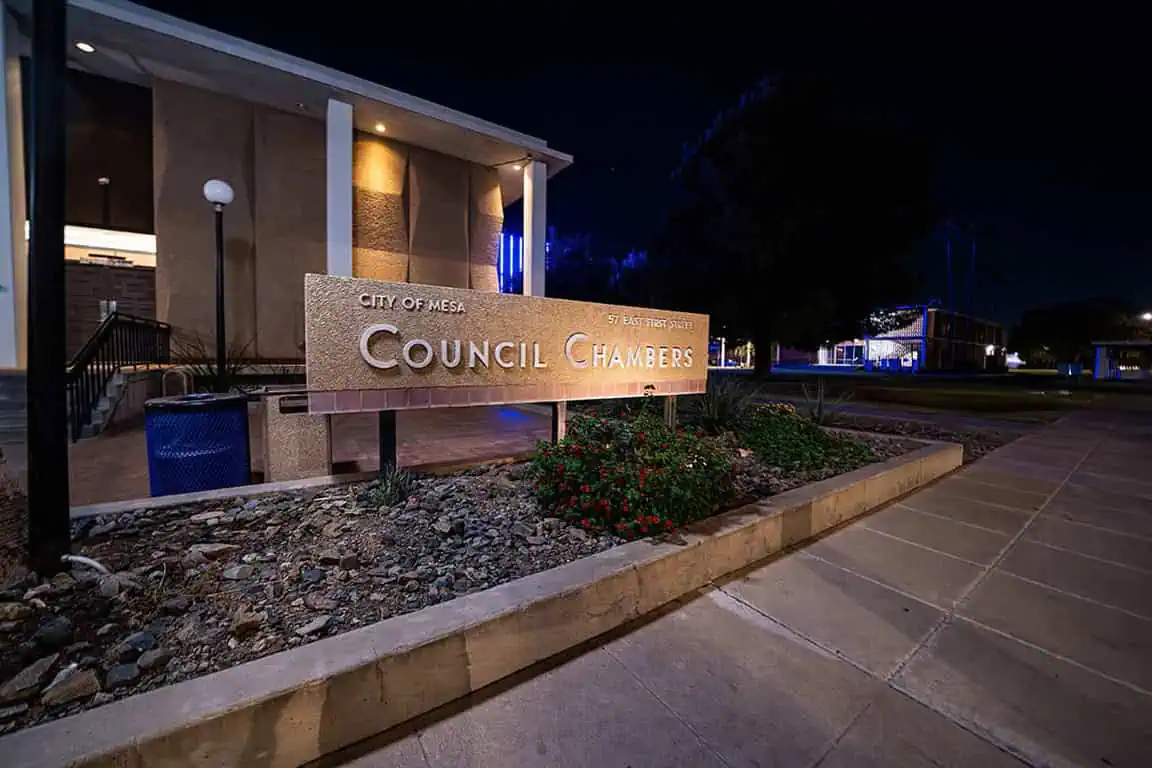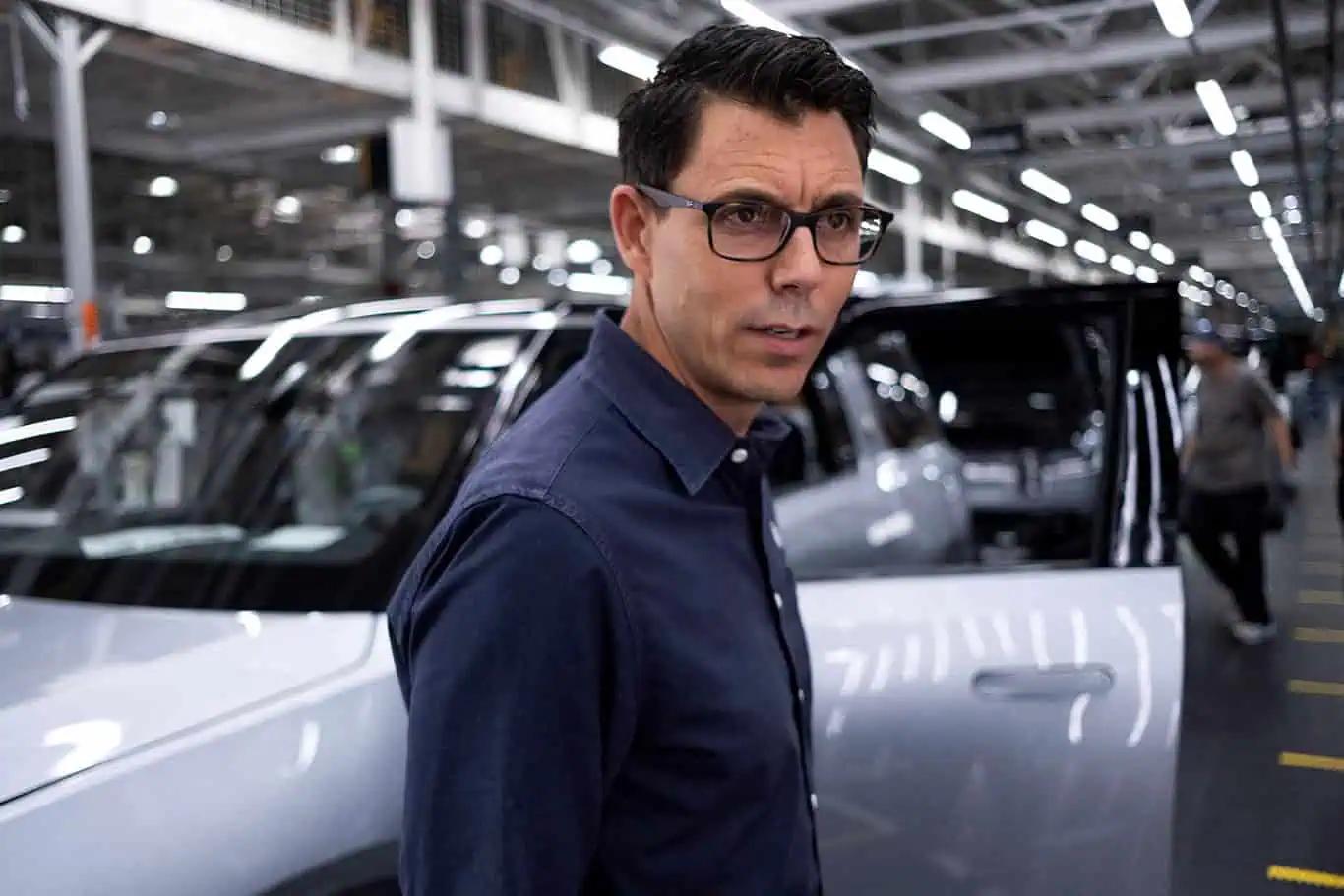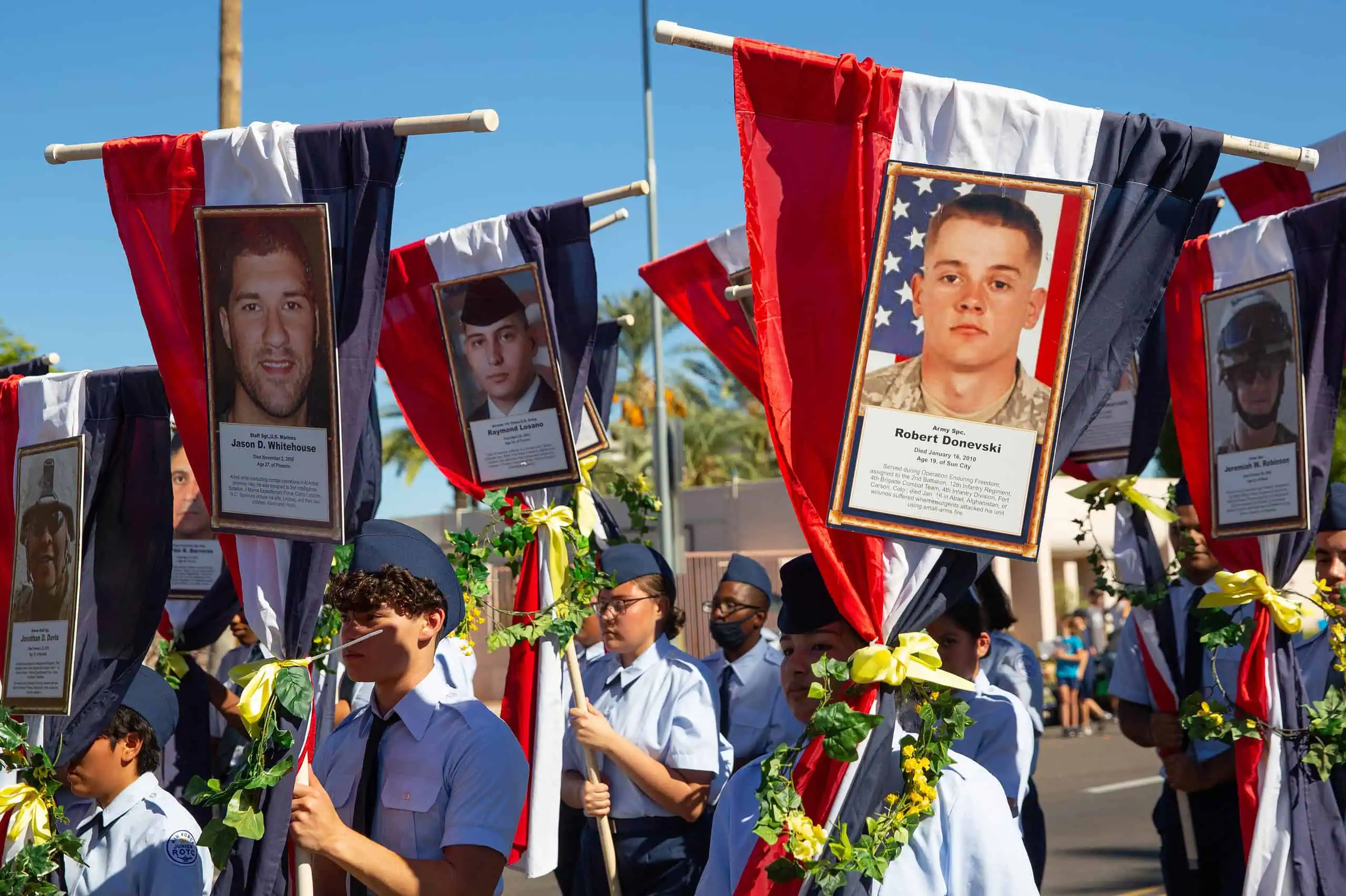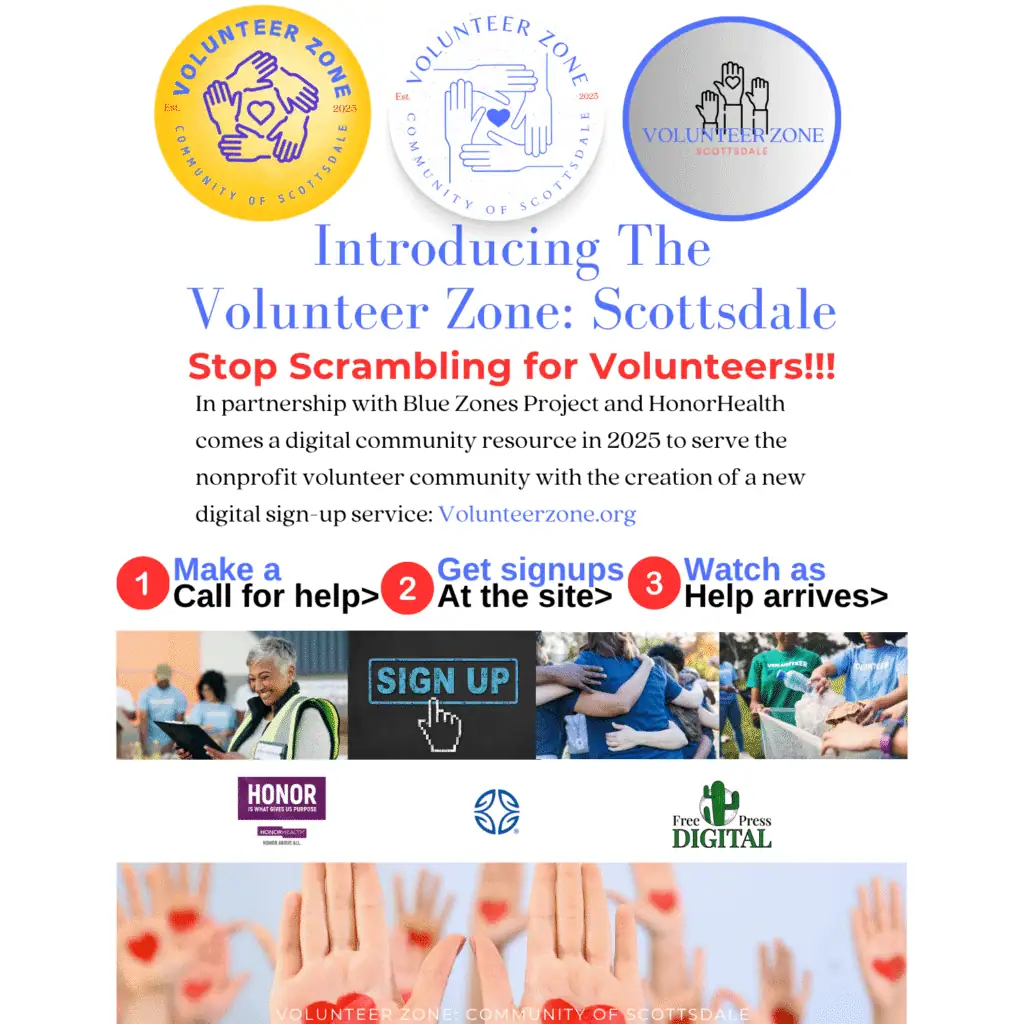



Sponsored Content | Digital Free Press
Tyler Packer doesn’t remember much about April 8, 2022 — the day he nearly died on the job.
A seasoned firefighter and paramedic, he had just started with the Salt River Fire Department after years up north in Ponderosa. He was eager to take on more calls and help more people.
That morning, for reasons he still can’t fully explain, he told his wife he didn’t want to go to work.
“She said it was weird,” Packer recalled. “I was always working, always picking up overtime. I loved my job. But that day, I had this feeling.”
Hours later, an ambulance carrying Packer and a colleague crashed. The vehicle split apart. Packer was pulled from the wreckage with injuries that read like a catalog of trauma: a traumatic brain injury, 11 broken ribs, a fractured neck, a ruptured spleen and a broken clavicle. He slipped into a coma that lasted 10 days.
He woke up on Easter, though he jokes that he wasn’t really awake. “My wife says I opened my eyes, but I wasn’t truly there,” he said.
Packer spent weeks in intensive care, then moved between facilities he can’t remember. His wife, Shavonna, refused to leave his side — even when staff discouraged her from staying overnight.
“She’s my best friend,” he said. “We’ve always been together, and she wasn’t about to leave me then.”
Before the crash, the couple had put off traveling. They didn’t feel rushed to start a family. Packer thought they had time. After his recovery, everything changed.
“I never really wanted kids,” he said. “Then the accident happened, and I thought, ‘I want to be a dad.’ I want my bloodline to continue.” Earlier this month, Shavonna gave birth to their daughter Oaklee.


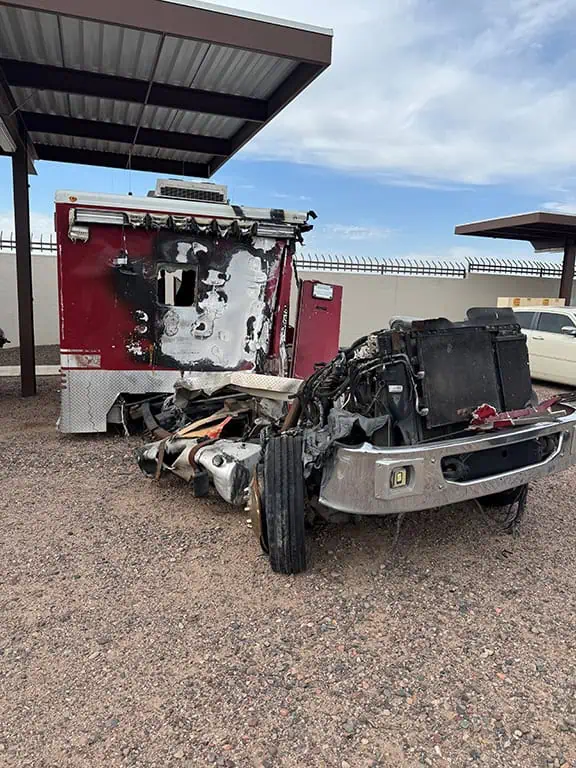

Tyler’s journey back to the career he loved started with basic rehabilitation to relearn life skills. At first, he couldn’t drive. Shavonna and friends ferried him to doctor and rehab appointments, and someone had to be with him 24 hours a day as he recovered.
Bit by bit, he earned back his independence. Therapists granted him small increments of unsupervised time — first two hours, then four, then 12. The day he could finally drive himself again felt like a triumph.
“You take those things for granted as an adult,” he said. “You don’t realize how much you value your freedom until it’s gone.”
Eventually, he was cleared to begin the process of focusing on his work skills – the fundamentals of firefighting and paramedicine like drug dosages, procedures and all the details a medic must do when going out on a call.
He spent months on modified duty, shadowing colleagues like a “glorified ride-along,” as he put it. “It was like being babysat,” he said. “At 27, that’s not what you want.”
Packer has become something of a celebrity at HonorHealth Scottsdale Osborn Medical Center, where he was first treated. These days, when he rolls a patient through the doors, nurses stop him in the halls.
“One nurse saw me and said, ‘Oh my God, it’s you!’ and gave me a huge hug,” he said. “They know me, even though I don’t remember them — but they’re the reason I’m still here.”
Packer recalls one day when he dropped off a patient and the trauma team’s leader, Kaveh Najafi, DO, surgeon and trauma medical director at the hospital, greeted him warmly. The two shook hands. Packer admitted he didn’t remember their first meeting when Dr. Najafi and the team worked to save his life.
“Now, every time I see him, I tell him, ‘It’s better to see me like this instead of like that,’” Packer said.
Dr. Najafi remembers that day vividly — not just because of the severity of Tyler’s injuries, but because of who he was.
“When someone like Tyler comes in — a firefighter, a paramedic — there’s an added layer of emotion,” Dr. Najafi said.
“We work alongside first responders every day. We rely on them, just as they rely on us. So, when one of them is hurt, it feels personal. It’s not that we treat them differently — every patient gets the same high level of care. But in moments like that, the sense of responsibility and connection runs even deeper. It’s like taking care of family.”
Tyler’s condition triggered a red-level trauma activation — the highest — summoning nearly every corner of the hospital: trauma physicians, anesthesiology, ICU, radiology, respiratory therapy, the OR team, lab and blood bank.
“It’s a full mobilization of resources,” Dr. Najafi added. “He was incredibly sick when he arrived.”
Even now, seeing Tyler walk through the doors with new patients gives Najafi and the team a renewed sense of purpose. “It’s incredible,” Dr. Najafi said. “It reminds us that what we do really does make a difference. You see someone like Tyler walk in, and you think, ‘We helped him get back to this.’ It’s not just a job — it’s meaningful.”
Dr. Najafi also recalled an especially powerful moment few others witnessed:
“At all times, 24 hours a day, there were two firefighters outside his room. Some came from Phoenix, Tempe, even Flagstaff — people who didn’t even know him. They weren’t there to guard him; they were there so he was never alone. It was a brotherhood — family taking care of family.”

Not all the aftermath was physical. For a long time, Packer wrestled with guilt over surviving when his colleague, who was driving the ambulance, did not. He still doesn’t fully understand why he lived. “I kept asking myself, ‘Why did I survive? Why not him?’” he said. “For a long time, I’d just sit down and cry.”
It took months to come to peace with that question. Friends reminded him there might never be an answer, but perhaps there was a reason he was given more time.
“Now, with Oaklee here, I think — maybe that’s part of it,” he said.
He believes those who loved him and have passed on — his grandmother, a close friend who died by suicide, an uncle — were somehow watching out for him that day. “I like to think they were all up there saying, ‘Nope, it’s not his time,’” Packer said.
These days, he’s back on the truck, responding to calls and living the life he once feared he’d lost. He and Shavonna have made up for lost time, traveling across Europe and Hawaii. He still plays his favorite song, “The Funeral” by Band of Horses, as a reminder to seize every day.
“I’ve always lived life to the fullest,” he said. “But after April 8th, I really mean it. You never know when it could all be gone.”
When Packer transports patients to Osborn now, it feels like coming full circle. He’s grateful to the team who put him back together — and he plans to honor them in some permanent way.
“I want to hang something in Trauma Bay 53,” he said. “That was my room. They saved me there.”
He’s also determined to share his story widely, hoping it can help someone else. “If I say one thing that helps even one person, that’s worth it,” he said.












